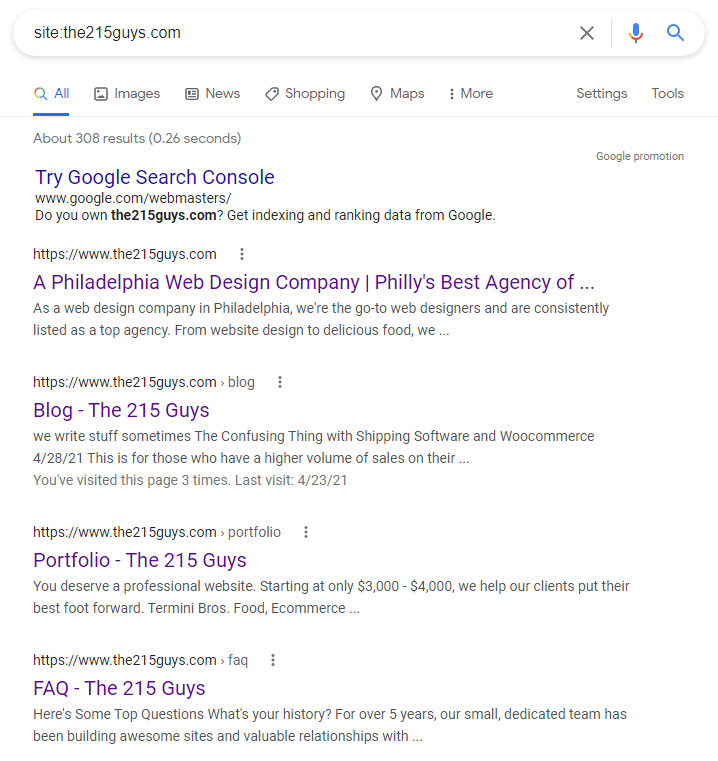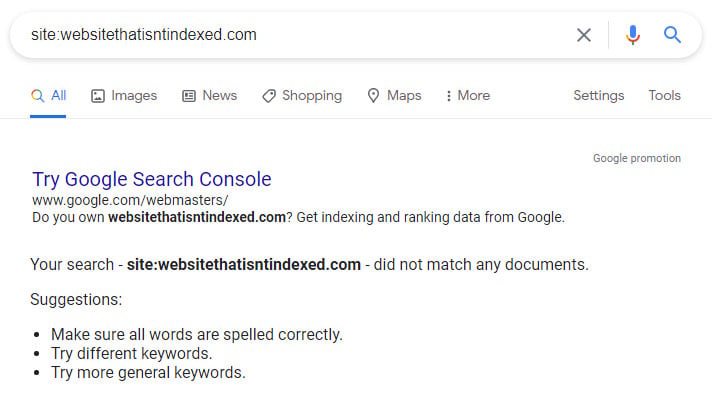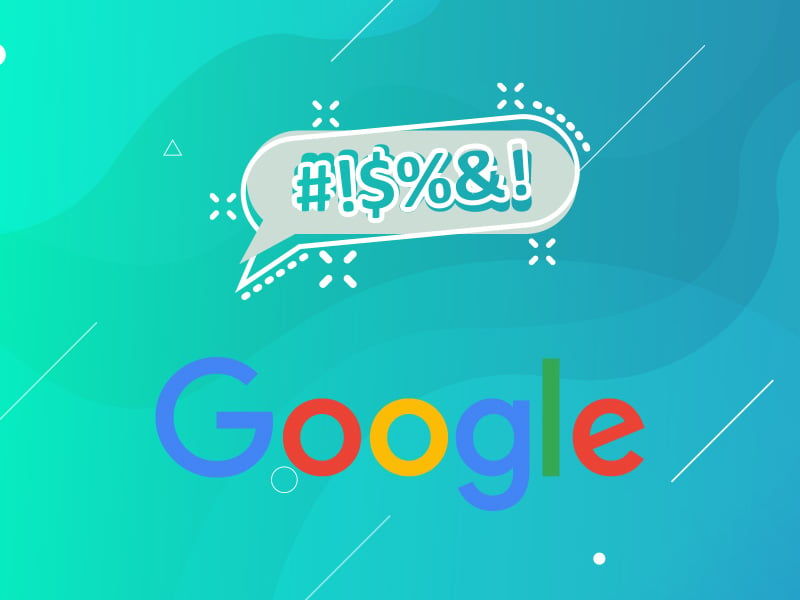We get it - you’re wondering “why does Google hate me?”. We can assure you, Google doesn’t hate you. They might not like what you’re doing, but they understand. Just kidding, they don’t care. Seriously, they have so much going on that they can’t care about everyone, unfortunately. As a small business owner, website administrator, content creator, or just someone who uses Google, it’s impossible to ignore their influence when you go online.
So, it only makes sense that, every once in a while, Google might do something that’s super-duper frustrating. And that’s why I think everyone has thought, in one way or another, that Google might hate them.
Being a web design company, our clients can literally grow or go out of business depending on Google’s search algorithm. It’s possible that Google could make a change and their website drops in rankings on their search engine. If no one is able to find our clients’ websites, then there’s no point to even having a website.
It’s important for us too! We get a large portion of our clients from organic searches and we would hate to lose that. But, in over 5+ years, we’ve never had a problem with any changes Google has made. I think we’re pretty good at what we do :)
Google is a large company so let’s narrow this down. Because we’re a web design company, let’s talk about why Google might hate your website and the reasons it may have lost rankings or isn’t being ranked on their search engine. There’s a bunch of reasons and I’m going to give you some actionable insights into what you can do about them.
More about Google’s search engine
I’ll keep this short because I’m sure everyone knows about Google and “Googling”, or using Google’s search engine to search for something. Google has a search engine, usually just referred to as “Google”, that indexes and lists websites from around the world. You can then “search” through these websites it lists and Google will do its best to give you the most relevant lists of websites it thinks fits your search query.
So, if you type in “why does google hate me”, you found this article because it thought it was relevant...which it is! So, we know it works.
This is important for business owners, website admins, and our clients because we all want our websites to show up when someone searches for something related to us. It gets complicated because Google is literally sifting through millions/billions/trillions of websites from around the world. That means that The 215 Guys in Philadelphia, for example, is competing with other web design companies in San Francisco (a tech hub) and other places around the world. So, the task of showing highly in Google becomes daunting when you think of the scale and competition for literally everything becomes.
There are lots of reasons for Google to choose a competitor over your website. It might be devastating, which it can be to see someone above you in rankings when you know you’re the best, but Google doesn’t care (as I said earlier).
Google only cares about “making great stuff online” - John Mueller of Google, said recently. If what you’re putting online sucks, Google will think you suck. And thus, Google will hate you.
Let’s see what we can do about that.
We make some damn good websites.
Hit Us UpWhy does Google hate my website?
Google probably hates you because your website sucks - your SEO in particular.
Anyway, this is a big topic. Let’s go through some of the basics. We’re going to assume that you already have a website and you aren’t seeing it anywhere on Google or you’re buried deep on the 6th page. I’m going to list these in terms of difficulty from easy to advanced. Those ratings don’t mean that it’s easy to fix, just that it’s on the simpler things to diagnose and to fix.
If you aren’t a tech person, you may not be able to do any of these. There are lots of people on the internets who can help you, and we’re one of them. Just reach out!
So, let’s start with the easier ones.
Why doesn’t my website show on Google at all?
Easy
If you’re not seeing it on Google at all, there are a few things that I immediately look at. Just because you aren’t seeing it, doesn’t mean Google doesn’t know about it. See the difference? We want to make sure that Google knows it exists and if it doesn’t, why doesn’t Google know?
Check to make sure Google has indexed your website
You can do this by going to their search page and typing in: “Site:yourwebsite.com”

This will return any results Google has for your website. If you don’t see any results, this means that they don’t know about your website or there’s a problem. If you do see results, then you should move on to the next step. The rest of this section won’t matter for you.

So, if you’re still reading this part, there’s a good chance Google hates you. Sorry. Let’s see if we can figure out why.
Does your website work?
I know this seems obvious, but go to your website and make sure it’s online and working.
Check for the noindex flag in your meta tags
This one requires you to check the code on your website. The “noindex” flag tells search engines not to index your website. You’re basically saying, “No trespassing, don’t come here”, which you don’t want.

So, go to your website, right click and view the source code of your site. Search through the code by pressing control + f (command + f on a mac) and type in “noindex”. If you see it on the page, then Google hates your website and left immediately.
You’ll need to remove this code before search engines will consider coming back.
Is your website really new?
Google hates new websites. They don’t trust you yet and need some time.
There are ways to speed it up. There needs to be some sort of trust built in order for them to even think about you. One of the best ways to build trust in any relationship is a referral from a friend. In this case, Google’s best friends are other websites. Things like Facebook, Yelp, Twitter, etc. Try posting about your website there. We’ll talk more about this later, but this is commonly referred to as “Backlinks”.
How do I get my website to show higher on Google?
Advanced
So, your website is indexed on Google and you want it to show higher and/or on the first page of the results? Well, for the moment, it seems like Google hates you...but not too much. Being at this step actually means that they like you but they really really like other websites more.
Is your website mobile responsive?
This is referring to your website working and looking good on all devices - including phones and tablets. Google recently switched to indexing and ranking the mobile version of your website. They don’t even bother to check what it’s like on a desktop, that’s how much they value a website being responsive.
The easiest way to check if your website is responsive is to check your website on your phone. If it looks like crap, then Google hates you. Fixing this requires a developer. Reach out to whomever made your website to get this fixed.
Is your website really slow?
Slow loading times aren’t just bad for SEO, they’re not good for the person using your website too. Any page that takes longer than 3-ish seconds to load has an increased risk of users closing the page and going somewhere else.
Google wants to make sure that they websites they send people to give the best experience and a slow website isn’t good. You can check the loading speed of your website by finding one of the many tools online that scan for this.
In general, you’ll need someone to help you fix this. It could be any number of things from poorly coded to slow website hosting.
Does your website have enough words/content?
You can probably fix this one on your own! We recommend that any page you want to be on Google have at least 300 unique words. You can’t just copy words from another website and it can’t be the same word or phrase repeated 300 times.
Of course, more is better. 300 is just the absolute minimum. If you check your competitors, how many words do their pages have? You’ll probably want to have at least that many...and then tack on another 500. This can sometimes be daunting if they have 2000 words - how do you do this? Well it might be time to get some help if this is your situation.
How do I get my website to show even higher on Google?
Expert
So, Google probably doesn’t hate you at all if you’re looking for suggestions here. They probably really like you and you’ve risen to pages 1-3 on Google’s results. Even though I’m listing these as expert, they aren’t the most difficult - there're more tiers above expert. So, if you do some of these and see no change, there’s more you could be doing (and that’s when you would involve an SEO company, like us).
Does your website meet these guidelines for on-page SEO?
On-page SEO is a collection of techniques you use to optimize a page on your website. You have direct control over this and it includes code and other tech things. Here’s a list of some of the basic on page guidelines we follow whenever optimizing a page for SEO. Google loves all of the following:
- SSL Certificate - this is a security feature that encrypts data from your website to the server it’s hosted on.
- Main keyword in page title
- Main keyword in H1 tag
- Partial keywords in H2-H4 tags
- Partial or full keyword in strong tags
- Enough content - we suggest an absolute minimum of 500 words and a few images. The text must read well and be unique (we use Copyscape). The images must be unique (you can test this by doing a Google image search).
- Load speed under 2 seconds - we use caching plugins, hand-selected hosting companies we trust, and Cloudflare.
- Must be mobile responsive
Do you have enough backlinks?
If you have no backlinks, Google probably hates you. A backlink is any link from an unrelated website to your website.
Familiar with the idea of citing your sources when writing a paper in school or for your job? After enough of these citations, the original source starts to become an authority and more and more people will trust that source as the main place for that information. This idea is exactly how Google views backlinks. With more and more backlinks, the original source starts to look like the authority for that information.
If you’re an authority, Google can only assume that your website will provide the best information for a user and they’ll push you higher in the rankings. While Google has never said it, everyone in the SEO industry knows that backlinks have to be in the top 3 factors in their decision on where to rank a website.
Backlinks are very important. Getting them is not easy. However, there are places you can go to get the basics. If you’re a local business, make sure you sign up for every local directory you can find: Yelp, Yellowpages, Google Places/Maps, etc. If you’re up for it, reach out to your local newspapers and pitch some ideas for an article about you - maybe you’re opening soon and want to announce it, or you have a new service being launched, or maybe you’re donating to charity. Any of those could make a good story and they’re likely to link back to you in the online article.
There are lots of methods to get backlinks but most are difficult to get. You’ll want to hire someone to do this if you have other things in life to do. Even though the investment could be high, it’s worth it in the long run. If done correctly, you’ll dominate on Google.
Is your niche competitive?
So, not to shame any of the people who contact us for websites and SEO, but we get people who ask to rank for things like dog toys, social network, online auction, t shirts, etc. If only it were that easy…
There’s no way that anyone will be overtaking the behemoths in those industries. You’re talking billion and trillion dollar companies who they’d be competing against. Not gonna happen.
You’d be surprised, though, that smaller niches can be highly competitive too. Even things like Painting companies, landscaping, accountants, etc can be hard to rank for. We suggest doing a google search for what you’re looking to rank for and check out your competition. And now check their on-page SEO compared to the list I mentioned above. Do they follow that? If they do, that probably means that they have a lot of backlinks. If that’s the case, you’ll probably want to hire someone to get you a report of why they’re ranking and how you can, if possible, beat them.


